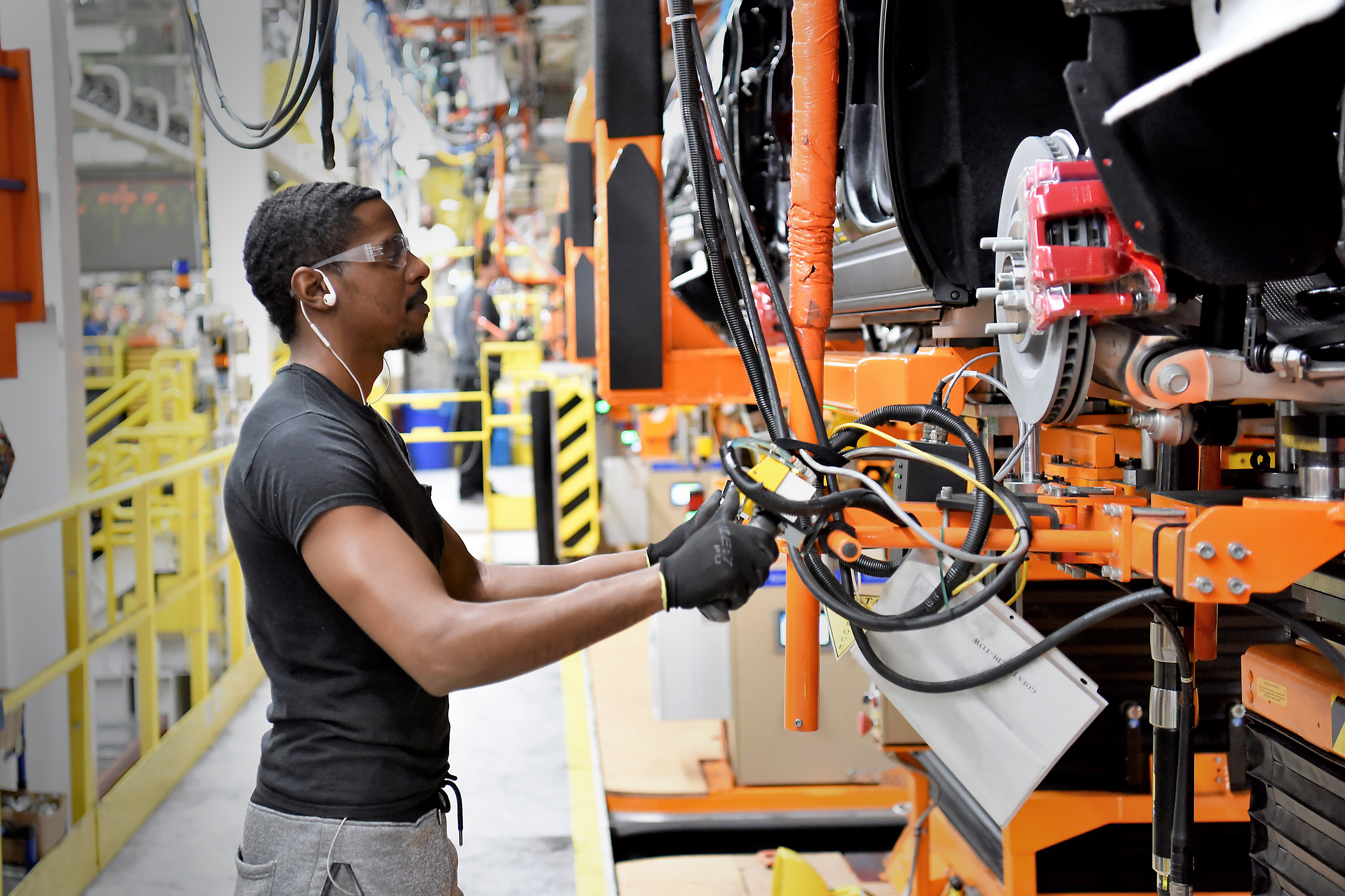
Jeremy Kennedy, a Ford employee, secures the engine and transmission to the subframe of a new 2020 Explorer at Chicago Assembly Plant.
Ford
As the coronavirus spreads across the globe, shuttered auto plants in Europe, North America and Latin America could reduce global production this year by more than 1.4 million vehicles, according to new research from IHS Markit .
Auto plants across the globe have announced plans to temporarily suspend production in order to sanitize facilities and prevent the spread of COVID-19. The hiatus, which could last for nearly three weeks in some cases, would create an immediate cash crunch to automakers through lost vehicle production.
In Europe, where assembly operations have shut down for an average of 13 working days, the temporary closures will cut production by more than 880,000 vehicles, according to global information provider IHS Markit. The shutdowns in North America, which IHS Markit estimates will cost an average of six full days of production, will cut output by 480,000 vehicles.
New measures to contain the pandemic in Brazil and Argentina will cut production by 80,000 vehicles in South America, IHS Markit predicts.
It is not clear whether production will resume after these initial closures. Even if production stalls for what’s already been announced, the assembly ramp-up phase that follows will cause further issues, according to IHS Markit.
In North America, Ford, General Motors and Fiat Chrysler announced Wednesday plans to temporarily halt production for nearly two weeks after bowing to pressure from the United Auto Workers Union, which wanted to improve safety protocols to protect employees against the pandemic.
The halt in production could hurt the cash flow for the automakers as demand for cars declines amid the COVID-19 outbreak. RBC Capital Markets adjusted its forecast for auto stocks and said that fallout from the coronavirus could send global auto production down 16% in 2020, fueled partially by an expected 20% decline in U.S. sales.
The coronavirus has infected more than 265,000 people across the globe with nearly 16,000 of those being in the U.S.
— CNBC’s Phil LeBeau contributed to this report.



